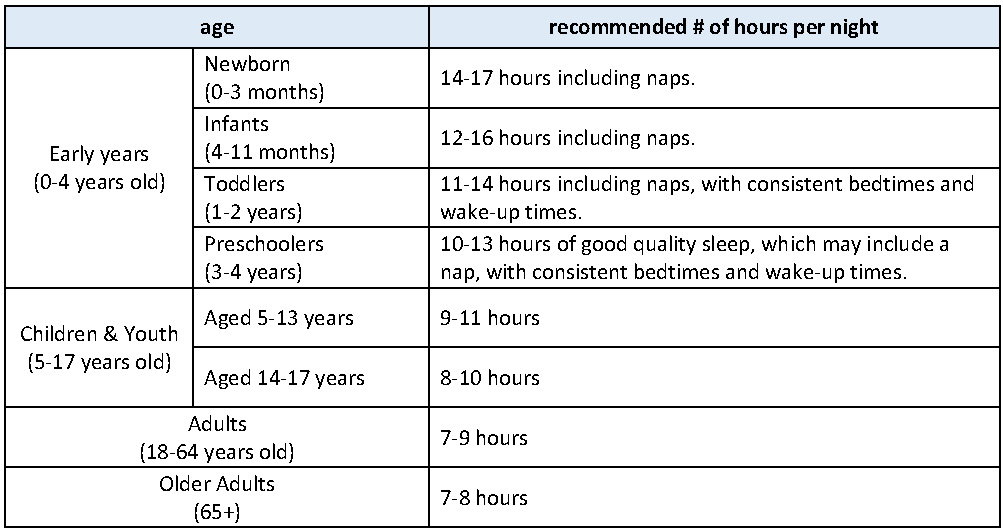Sleep is essential for good health.
The quality and amount of sleep we get affects so many aspects of our overall health and wellness. Getting enough sleep has been associated with improved attention span, better learning and memory as well as having more energy. Having good sleep habits can help you fall asleep faster, sleep better & stay asleep longer.
The whole day matters. A healthy 24 hours is made up of getting the right amount of sleep, being physically active and limited time spent sitting.
How much sleep is enough?

reference: 24-Hour Movement Guidelines
Tips to improve your sleep: *
- Avoid alcohol, caffeine and nicotine before bed.
- Move regularly throughout the day and limit extended periods of sitting or lying down awake.
- Set up a comfortable sleep environment that is cool, dark, and quiet.
- Keep your body comfortable: not too full or not too hungry, not too hot or not too cold.
- Maintain a regular bedtime/wake time.
- Avoid screen time (phone, tablet, television) at least one hour before bedtime.
- Keep screens (phone, tablet, television) out of the bedroom.
- If you have to have your phone nearby at night (eg. use your phone as your alarm clock), take advantage of features or apps to turn off notifications at night and reduce bright light on the screen (such as night mode and blue light filters).
If you’re a parent/guardian, you can help your child sleep better by: *
- Being a role model and making sleep a priority. Talk to your child about the importance of sleep and promote independence by involving your child in setting a sleep routine.
- Setting a regular sleep and wake-up time, even on weekends.
- Avoiding screen time (television, phone, tablet) at least one hour before bedtime.
- Setting up a comfortable sleep environment that is cool, dark, quiet and free of televisions and other screen devices.
- Ensuring children and youth avoid caffeinated food and drink.
- Being active during the day to help maintain a healthy lifestyle, including improved sleep quality and duration.
* note: these are general recommendations and not medical advice. Please consult your health care provider for further information and guidance if your sleep troubles persist, or if you are experiencing ongoing sleep issues.
For more information:
20210819/cg:nd